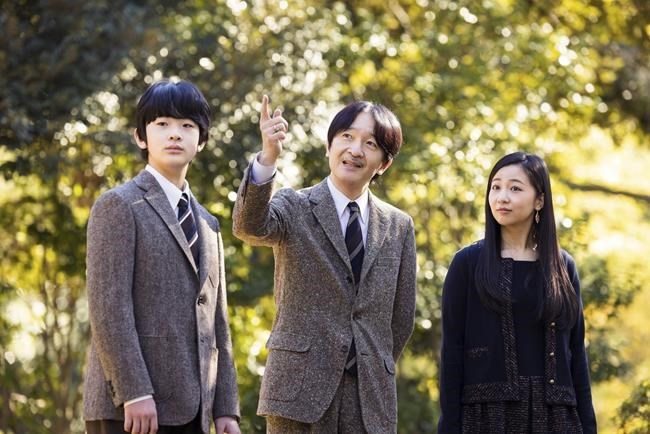TOKYO (AP) — Japanese Crown Prince Akishino, the younger brother of Emperor Naruhito, has complained about harsh criticism of his daughter’s recent marriage and suggested that the imperial family should be allowed to refute false and extreme attacks.
Currently, members of the family are generally expected to stoically weather any criticism with little public complaint.
The crown prince's daughter, former Princess Mako, married commoner Kei Komuro, her college sweetheart, last month without a traditional wedding celebration, in part because of public criticism of a financial dispute involving the groom's mother. Their marriage was delayed by three years.
“Libel, whether in magazines or online, is unacceptable,” Akishino said at a news conference that was recorded last week and released Tuesday to mark his 56th birthday.
He described some magazine reports as fabrication, while others included opinions “worth listening to.” But he said some comments on social media “were horrible.”
Akishino's grandfather, the late Emperor Hirohito, was revered as a god until the end of World War II, which was fought in his name. But the royal family today is often the subject of gossip magazines and social media comments.
Palace doctors said in October that Mako was recovering from a form of traumatic stress disorder that she developed after seeing negative media reports about her marriage.
Akishino's mother, Empress Emerita Michiko, the wife of former Emperor Akihito and the first commoner to marry a monarch in modern Japanese history, collapsed and temporarily lost her voice in 1993 following persistent negative media coverage. In response, the Imperial Household Agency set up a website to address some questionable reports.
There should be "certain criteria” that allow the royal family to respond to libel exceeding the limits of tolerance, Akishino said, adding that he planned to discuss the issue with palace officials.
He said libel hurts many people and even can lead to suicide.
Mako announced in September 2017 that she intended to marry the following year, but the financial dispute involving her finance's mother surfaced two months later and the wedding was suspended.
The couple now lives in New York, where Komuro works at a law firm. The dispute was resolved when he paid the contested money just before they left Japan.
Critics say Mako’s marriage highlights difficulties faced by women in the imperial household.
Mako lost her royal status because Japanese law requires female royals who marry commoners to leave the family. The Imperial House Law allows only male succession.
Mako's departure reduces the size of the imperial household to 17. Naruhito has only two possible male successors — Akishino and his son Hisahito — except for his 85-year-old uncle Prince Hitachi.
Mari Yamaguchi, The Associated Press



